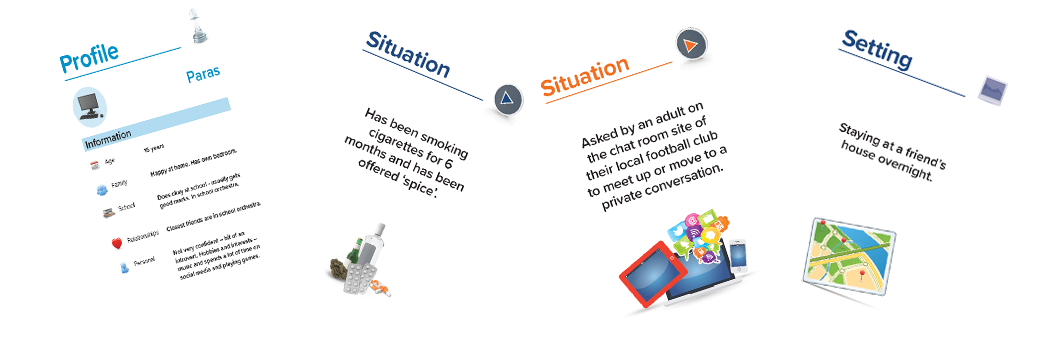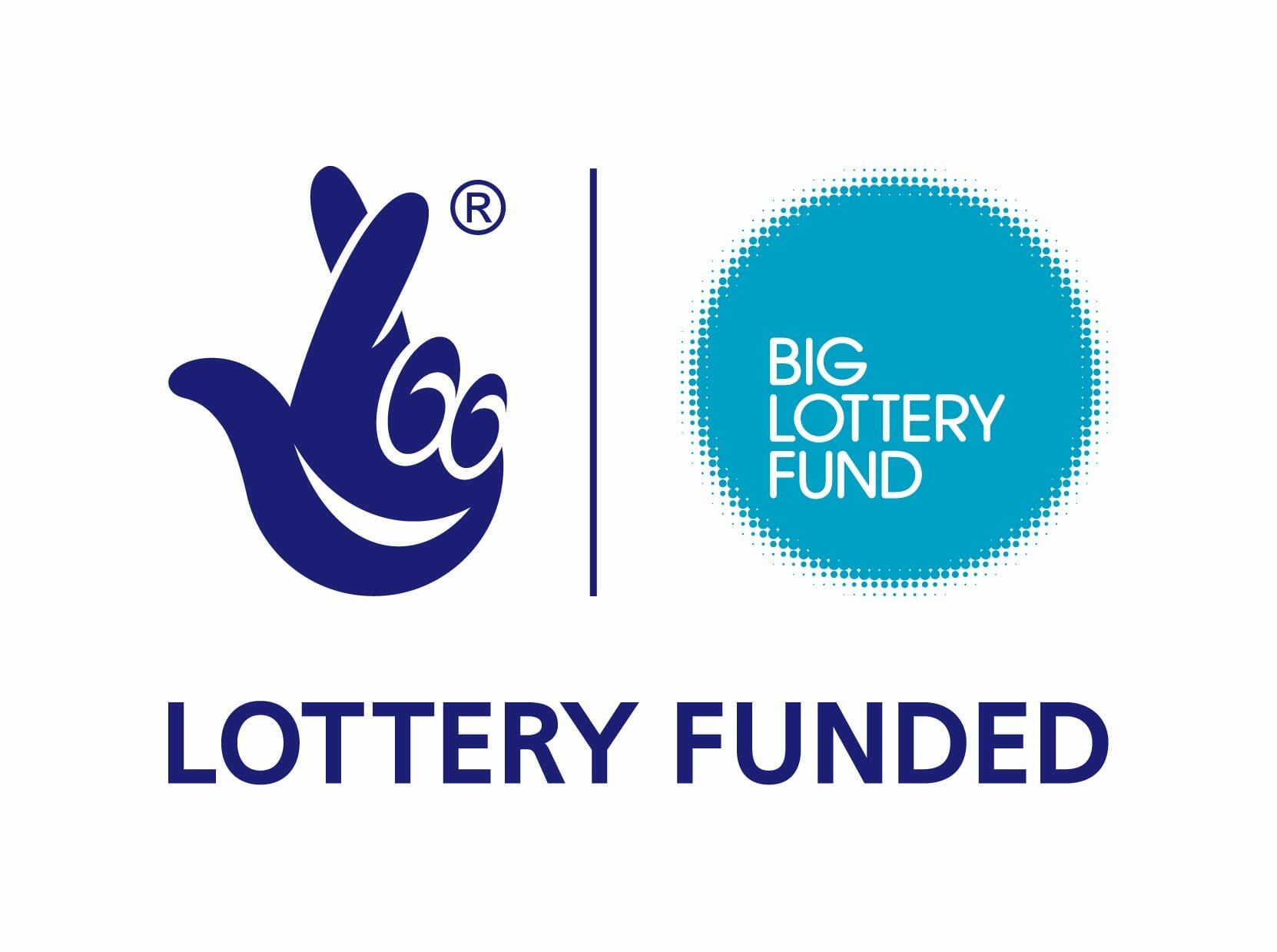The Life Skills Game
Role play around risky behaviours.
The Life Skills Game is a resource that allows facilitators to engage young people in discussion and explore a range of issues linked to risky situations. There are four modules available which cover internet safety, drug and alcohol awareness, knife crime and hate crime.
Place an Order
Our unique SKILL DECISION MAKING MODEL is explained and utilised to enable young people to make step by step decisions, weighing up risks and assessing the consequences of their potential actions. We teach young people to stop, think and consider before making decisions in difficult situations and encourage them to make safe and healthy choices.
Why use the Life Skills Game?
Working with young people you will have a good understanding of how they can behave and respond to the challenges around them. Adolescence is a time of opportunity but also of risk and this can manifest itself in pushing the boundaries, challenging others and for experimenting and taking risks.
As a result teenager’s behaviour can be impulsive and unpredictable; they are experimenting and developing into an individual who is increasingly responsible for themselves and beginning to respond to (and often challenge) societies changing expectations of them.
Key Features
Apply the SKILLS Decision Making Model in a variety of situations surrounding the issues above
Practice effective decision making by exploring a range of different scenarios applied to different people in different situations and locations
Explore ways of keeping healthy and safe and to recognise that action can be taken which minimises risk in varying situations
Understand the law as it relates to the issues discussed
Strategies
Teenagers are extremely susceptible to peer pressure and often find themselves in a situation where it is difficult to make a wise choice – this is where you can help support them. As a teacher, Youth or Community Worker, by using the tried and tested SKILL Decision Making Model within the Life Skills Game you will give them the tools to be able to take a step back and work through issues step-by-step. Once learned they will carry this with them as they develop into young adults and this will enable them to make more effective and positive decisions in life.
Not just in schools
Many groups and organisations have used the Life Skills Game – these include youth and community groups, young offender’s institutions and youth offending teams. They have been able to both help young people to reflect upon their behaviour and to understand how making a different choice would have meant an alternative outcome for them and others, and also to explore how their responses to future events might be considered more thoughtfully.

Profile, Situation and Setting cards
The programme utilises a series of profile, situation and setting cards for each of the modules covered. There are a number of each and when combined as a set create a topic for discussion by the young people. There are also sets of lesson plans and fact and statistics to help with facilitation of the sessions.

The Life Skills Game has been developed for young people 12-15 years, though older age groups may find this resource useful too. It is appropriate for use in any situation/setting and the group facilitator is provided with a session plan including detailed game instructions, legislation sheet and a glossary of terms.
Development
The Life Skills Game has been developed over a number of years and the Internet Safety and Drugs and Alcohol Awareness modules were updated in 2021, when two new modules – hate crime and knife crime were added. It has been completed with funding from the Big Lotto’s Awards for All programme.
Playing the Game
The Life Skills Game is role play game played by assembling a set of cards. In all four modules there are different cards – a profile card which details an individual, a setting card which identifies where they are and a situation card which gives the set of circumstances in which the person finds themselves.
Facilitating discussion
Using the information gathered from the set of cards, the group work through the SKILL Decision Making Model to define the key aspects of the scenario laid out before them. This includes the issue or decision facing the character in the profile card, what options are avaiable and how to respond.
Underlying themes
Facilitators lead the discussion and encourage the group to examine a range of different possibilities and outcomes to come to a well-thought-out decision. Underlying themes of the Game can also be considered; the concepts of responsibility, peer pressure, managing stress, staying healthy and safe, exploring risks and consequences, and being a good citizen.
The Life Skills Game is a resource that is simple to use, requires no formal training* and can be delivered anywhere to small or large groups or in work with individual young people.
Included in the pack are full instructions for playing the Game, information on the law as it relates to the subject matter and ideas for further discussion – lessening the burden of lengthy preparation for facilitators.
*Facilitators are strongly recommended to ensure they have adequate subject knowledge/experience before working with young people and to research the chosen topic.
The Game has been developed as a flexible resource which can be used quickly as a mini lesson or as a longer more focussed session. The facilitator can also lead the discussion by choosing the cards to be played, to address particular issues or opt for a more freely delivered session where a range of themes and topics can be explored.
Pre Printed Packs
The Life Skills Game Modules are available pre printed and ready to use from £45 per module. These hard wearing, gloss printed packs come in there own box are ready to use immediately.
Print your own
We also offer the option for you to download a PDF version of the game to print out on your own. For durability we suggest that you laminate these print outs so you able to reuse them.
Choose your own
There are 4 modules of the Life Skills Game, Drugs and Alcohol Awareness, Internet Safety, Knife Crime and Hate Crime, you can choose any combination of these.

Internet
Safety
Drugs and
Alcohol Awareness
Facilitate discussions around legal and illegal drugs, prescription medication, discount alcohol, and psychoactive substances.
Hate
Crime
Developed with Nottingham Citizens and Notts Police, this module looks at the difference between a hate crime and a hate incident, protected characteristics and other issues.
Knife
Crime
A module designed to help young people think about the dangers associated with knives and pointed objects in various situations and settings.
There are a series of introductory videos that accompany the Life Skills Game along with extra resources surrounding drug and life skills education issues which are collated and updated quarterly. Blank Profile, Situation and Setting Cards are made available for facilitators and students to create their own scenarios that are applicable to issues that directly affect them.
PDF versions of the modules can be downloaded from £10 per module with discounts available for multiple modules.
Pre printed packs are £45 per module.
